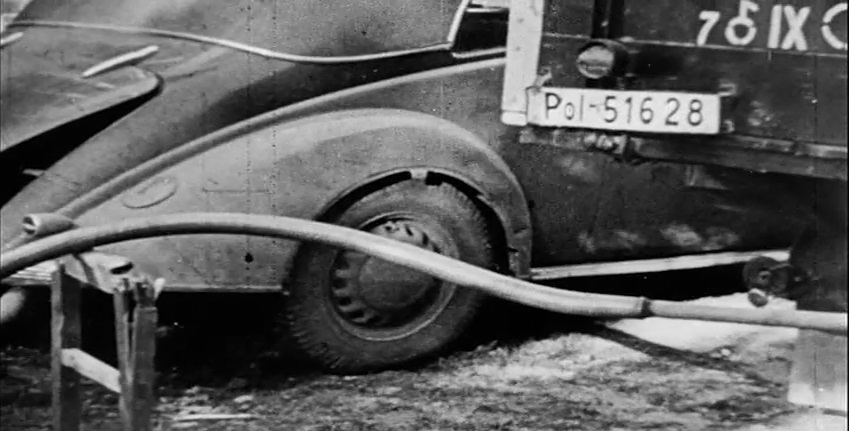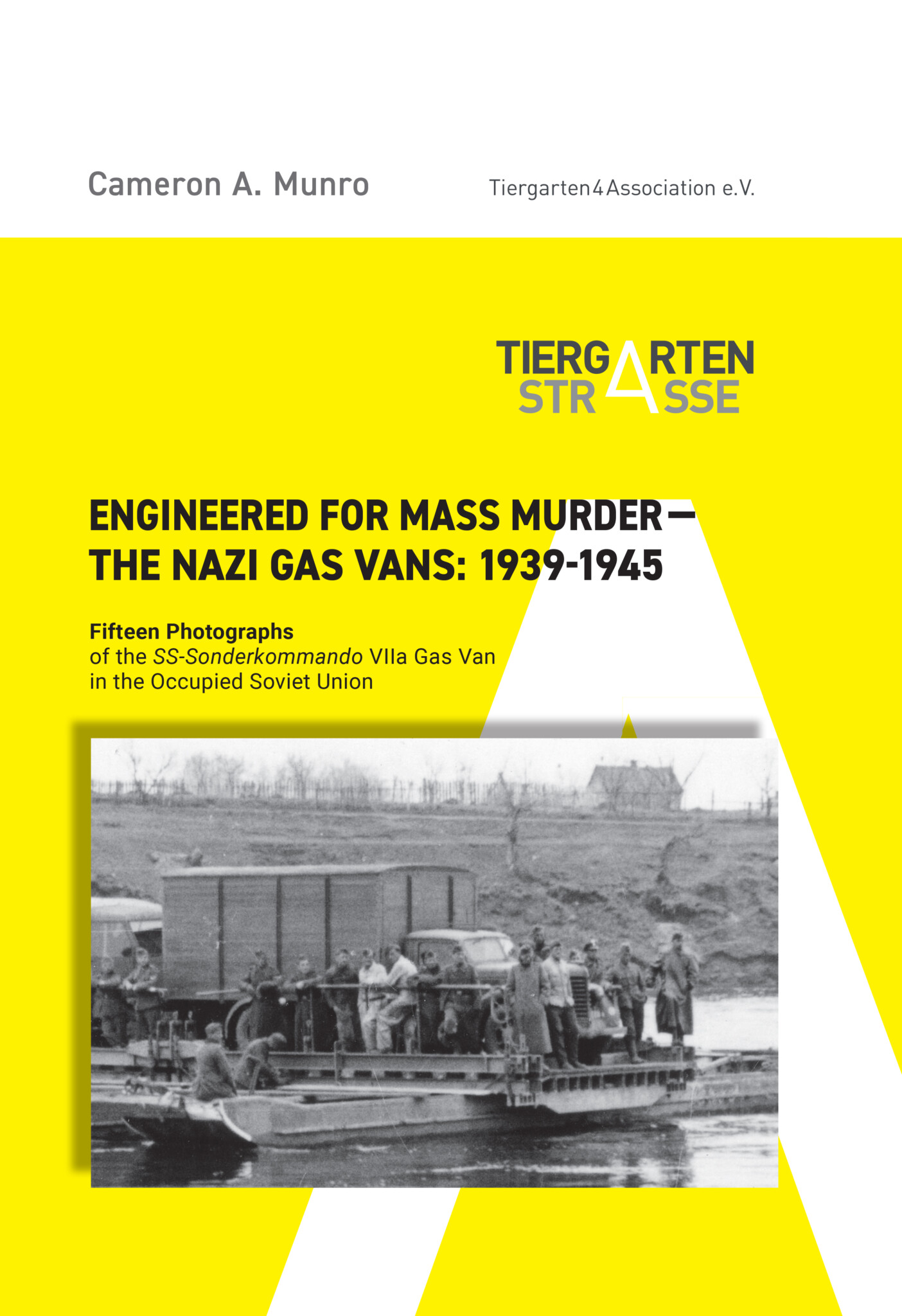German Footage of a Homicidal Gassing with Engine Exhaust
Recall that the truck, whose exhaust pipe is connected to the building wall, bears a tactical symbol and a numerical designation on the rear side of the flatbed (see Figure 1). Until now, these markings could not be clearly identified - but that has changed.
 | ||||||
| Figure 2: Photograph of homicidal gas van of SK 7a (from: Cameron Munro, "Engineered for Mass Murder – The Nazi Gas Vans: 1939–1945") |
The truck used in Mogilev therefore belonged - at least temporarily - to Einsatzkommando 9 of Einsatzgruppe B. Since the license plate visible on the vehicle can be linked to Einsatzkommando 8, it may be that the truck originally served with Kommando 9 and was later transferred to Kommando 8.
The tactical symbol on the truck provide further evidence that it belonged to Einsatzgruppe B - and thus confirm that the footage is indeed authentic documentation of a gassing operation carried out by Einsatzgruppe B at the psychiatric institution in Mogilev.




